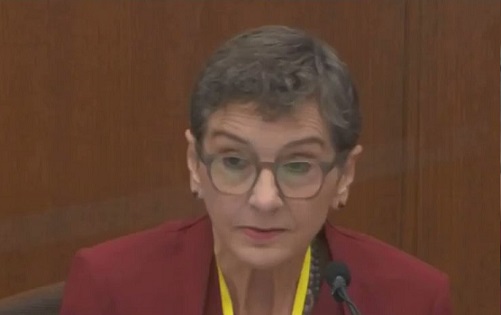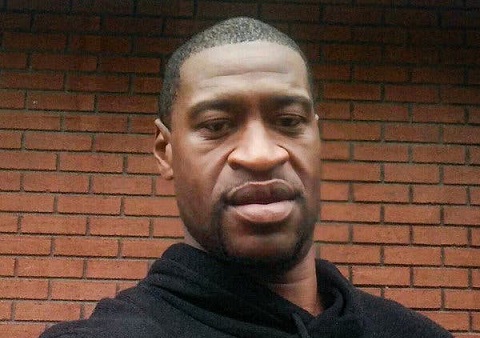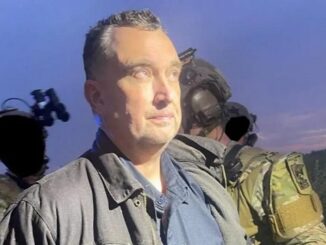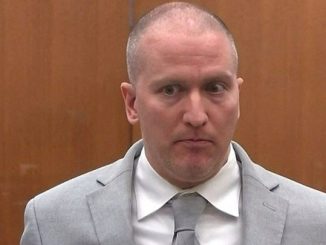
George Floyd died because of how police restrained him, a medical expert at the trial of ex-police officer Derek Chauvin in Minneapolis has said.
Forensic pathologist Dr Lindsey Thomas said “the activities of the law enforcement officers resulted in Mr Floyd’s death” from lack of oxygen.
Mr Chauvin, 45, was filmed kneeling on Mr Floyd’s neck for more than nine minutes during his arrest last May.
The footage of Mr Chauvin, who is white, with his knee on African-American Mr Floyd’s neck sparked global protests against racism.
Prosecutors are trying to prove Mr Chauvin’s use of force resulted in Mr Floyd’s death, while Mr Chauvin’s defence are seeking to show he was following his training and that drugs and heart disease may have caused Mr Floyd’s death.
On Friday, the prosecution also called medical examiner Dr Andrew Michael Baker, who performed the post-mortem examination of Mr Floyd.
He said Mr Floyd’s death was due to his interaction with law enforcement, but said his drug use and underlying heart disease also played a role.
What did the first medical expert say?
The official autopsy of George Floyd makes no mention of asphyxia, but Dr Thomas – a veteran forensic pathologist who has performed well over 5,000 autopsies in multiple US states – said she believed it was the primary manner by which he died.
Dr Thomas reviewed Mr Floyd’s autopsy, medical reports and other materials on behalf of the prosecution. She also trained Dr Andrew Baker, the chief medical examiner who issued Mr Floyd’s official death certificate.
“This is not a sudden cardiac death,” she said. “It’s a death where both the heart and lungs stopped working.”
She said Mr Floyd was unable to get oxygen into his lungs with three police officers on top of him because he was handcuffed, in a prone position and had a knee on his neck.
“What that means is the activities of the law enforcement officers resulted in Mr Floyd’s death.”
She said she could confidently rule out other possible causes of death, including a drug overdose, a fatal heart attack and lung disease.
When asked if Mr Floyd’s underlying health issues and ingestion of drugs might lead to a reasonable conclusion that he died of heart disease, Dr Thomas asserted it made no sense to ignore the reality of his “subdual, restraint and compression” by police.
What about the chief medical examiner?
After Dr Thomas, the prosecution called chief medical examiner of Hennepin County Dr Andrew Baker – the examiner who performed the official post-mortem examination on Mr Floyd.
Dr Baker echoed many of Dr Thomas’ findings, saying he died as a result of his encounter with police, not because of drug use or heart disease.
“Mr Floyd’s use of fentanyl did not cause the subdual or neck restraint, his heart disease did not cause the subdual or the neck restraint.”
Dr Baker repeated his initial finding that Mr Floyd’s death was a “homicide”, adding that this was a medical classification – not a legal one.
When questioned by the defence, Dr Baker admitted the drugs found in Mr Floyd’s system and his underlying heart disease “played a role” in his death – though not the cause.
Defence attorney Eric Nelson asked several questions about Mr Floyd’s drug use, and the fentanyl levels in Mr Floyd’s blood at the time of his death.
“In other circumstances, it would be a fatal level”, but he clarified that it was “very context-dependent”.
What will happen next?
The trial has finished its second week and is expected to last for around one month.
The defence is due to begin arguing its case in court next week. World Justice News are showing the Derek Chauvin Trial live. For the link to view the Derek Chauvin Trial please click here to see our daily schedule.
Source: bbc.co.uk







Be the first to comment